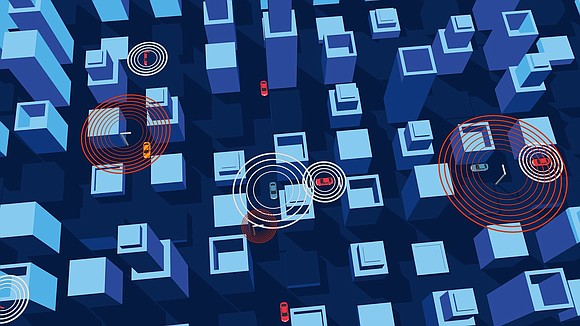What is 5G?
CNN/Stylemagazine.com Newswire | 2/25/2019, 2:02 p.m.

By David Goldman, CNN Business
(CNN) -- 5G will be the lifeblood of the new economy.
Self-driving cars, virtual reality, smart cities and networked robots will all be powered by 5G networks. 5G promises to open the door to new surgical procedures, safer transportation and immersive video games.
Major telecommunications companies are far along in their 5G network development, and the first 5G networks are already up and running.
5G is primarily about three new things: Faster speeds, faster connections and faster access to the cloud.
Faster speeds
Like every "next generation" wireless network technology, 5G will give your phone a speedier connection -- up to 100 times faster than 4G. That's enough to stream "8K" video or download a 3D movie in 3 seconds. (On 4G, it would take six minutes.)
5G's extra bandwidth will make service more reliable, allowing more gadgets to connect to the network at the same time.
But 5G is about much more than smartphones. Sensors, thermostats, cars, robots, and other new technology will all connect to 5G one day. Today's 4G networks don't have the bandwidth for the vast amounts of data all those devices will transmit.
To accomplish all that, much of the 5G network will travel over super-high-frequency airwaves. These higher frequencies bring faster speeds and more bandwidth. But they can't travel through walls, windows or rooftops, and they get considerably weaker over long distances.
That means wireless companies will need to install thousands -- perhaps millions -- of miniature cell towers on top of lamp posts, on the side of buildings and inside homes.
That's why 5G will initially complement 4G rather than outright replace it. In buildings and in crowded areas, 5G might provide a speed boost, but 4G will still be used to cover wider areas for the time being.
Faster connections
5G networks will also reduce to virtually zero the latency, or lag time, between devices and the servers they communicate with.
Today's networks take a split second to send and receive communications between a device and the network. A split second isn't much, but gadgets constantly communicate with the network when displaying huge files like virtual reality games or HD videos.
Zero latency can allow self-driving cars to process all the information they need to make life-or-death decisions in the blink of an eye. The health care industry believes 5G could help power the next generation of telemedicine and robotic surgeries. Those innovations will only be possible if the communication between a network and a device is seamless.
Faster access to the cloud
The 5G network can also act like a cloud server, performing much of the computing and storage that otherwise would have to be done by the self-driving cars themselves. That could potentially save the cars a lot of power and space.
Today's data centers are in centralized locations. The farther the data center, the longer it takes to access that data. 5G networks bring data storage much closer to devices and help them quickly access information.
With 4G technology, self-driving cars and virtual reality need to store data on-site. Accessing data centers takes too long, creating a herky-jerky experience on VR and a potentially life-threating one in cars.






